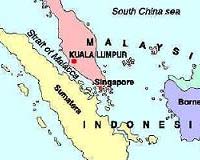 |
Baghdad (UPI) Mar 5, 2009 Iraq's oil exports last month were listed as the highest since Saddam Hussein invaded Kuwait in August 1990. That may enhance Prime Minister Nouri al-Maliki's election prospects but industry analysts say his plans to quadruple oil production in the next few years is way beyond Iraq's capabilities. "Oil exports for February reached 2.069 million barrels (per day) and this is the highest level since 1990," Oil Ministry spokesman Assem Jihad said Tuesday. "This is a step toward the ministry's goal of exporting 2.15 million barrels per day this year." In some quarters, the ministry's claim was taken with a pinch of salt amid suspicions it was a last-minute ploy to boost the chances of Maliki's Iraq National Alliance in parliamentary elections scheduled for Sunday. The ministry has in recent months signed 20-year contracts with foreign oil companies to take over 10 of the country's major oil fields with the task of boosting production as soon as possible. Maliki's government has said it aims to push production, currently averaging 2.4 million bpd, to 10 million-12 million bpd in the next seven years. This is intended to generate the revenue to pay for national reconstruction and to re-establish Iraq as a pre-eminent producer that will, rival, if not eclipse, Saudi Arabia and Russia, the world's leading producers. This ambitious plan, with investment by the oil companies running to at least $50 billion, has been greeted with considerable skepticism by many in the oil industry. Industry analysts maintain that Iraq's oil infrastructure has been so neglected and battered over the last three decades because of war, poor management, lack of investment and international sanctions that the goals Baghdad has set are unrealistic. And the Organization of Petroleum Exporting Countries, of which Iraq was a founding member, is not likely to allow Iraq to produce whatever it wants in defiance of its quota system that regulates output and prices. That, admittedly, is extremely leaky, some members blatantly produce more than their quotas when they feel they need to. But dominant powers such as Saudi Arabia are not going to meekly allow Baghdad to drive down prices through untrammeled production. And there remain fears that, as the U.S. military withdraws under a December 2008 security agreement with Baghdad, the country will descend into sectarian bloodletting again. Herman T. Franssen, president of the International Energy Associates in Washington, told the Emirates Business 24/7 agency this week that it is unlikely that Iraq will reach its production objectives. "Iraq continues to grapple with some very serious problems," he said. "I'll be surprised if they're able to achieve a supply level of 10 million to 12 million barrels a day in the foreseeable future. "Iraq does not have the required infrastructure, the ports or pipelines to be able to transfer such huge amounts of oil," Franssen said. The first big problems the Oil Ministry will encounter will be when the country's production capacity reaches 3.8 million bpd, he stressed. "That's when Iraq's production will match the quota fixed for Iran. And considering the traditional rivalry between the two countries, Iraq will face difficulties in raising output further," Franssen cautioned. The contracts finalized by the Oil Ministry have been an electoral boon for Maliki in many parts of the country and the prime minister has flaunted them for all they are worth during his campaign. Iraq has proven reserves of 115 billion barrels, the fourth largest in the world after Saudi Arabia, Canada and Iran. But its untapped reserves are believed to be as much again. That's enough to bolster Iraq's economy for decades to come while other producers' reserves start running out. But the vital issue of not only rebuilding Iraq's dilapidated energy infrastructure but vastly expanding it, amid the possibility of renewed sectarian strife, will be the deciding factor. "Bottlenecks are everywhere and it's going to be a very tall order," said oil analyst Samuel Ciszuk of the London's IHS Global Insight consultancy. "It's going to be very, very tough to do."
Share This Article With Planet Earth
Related Links Powering The World in the 21st Century at Energy-Daily.com
 Threat to tankers targets energy industry
Threat to tankers targets energy industryRiyadh, Saudi Arabia (UPI) Mar 4, 2009 Singapore's navy warned that terrorists plan to attack oil tankers in the choke point Strait of Malacca through which 15 millions barrels of Asia-bound Gulf oil, about one-third of seaborne supplies, pass every day. That advisory issued Wednesday set off alarms in the global energy industry, which has long braced for sustained attacks by al-Qaida and other jihadist organizations. ... read more |
|
| The content herein, unless otherwise known to be public domain, are Copyright 1995-2010 - SpaceDaily. AFP and UPI Wire Stories are copyright Agence France-Presse and United Press International. ESA Portal Reports are copyright European Space Agency. All NASA sourced material is public domain. Additional copyrights may apply in whole or part to other bona fide parties. Advertising does not imply endorsement,agreement or approval of any opinions, statements or information provided by SpaceDaily on any Web page published or hosted by SpaceDaily. Privacy Statement |